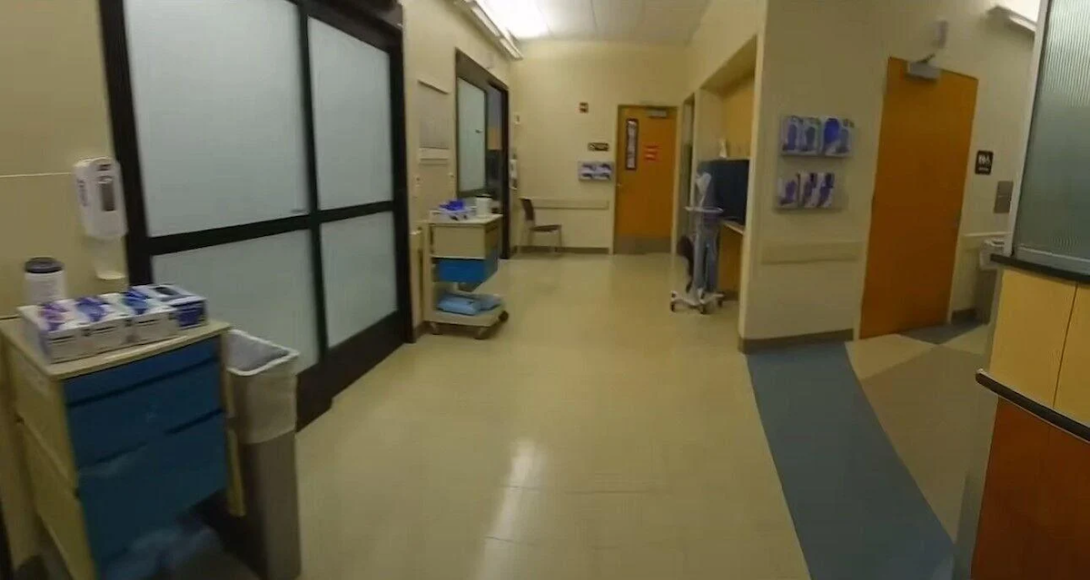
State and federal officials have launched investigations into the Dec. 12 death of a man who died after Providence Milwaukie Hospital staff requested police assistance in removing him from the ER.
Inquiry has turned to the hospital after Multnomah County prosecutors cleared police of any wrongdoing in the case. Evidence reviewed by prosecutors indicated the death of 26-year-old Jean Descamps during a Milwaukie police transport was “a medical event only,” a prosecutor wrote in a memo.
The preliminary investigation found a need for urgent changes.
“The investigation is not yet completed but the hospital was notified of an Immediate Jeopardy situation,” said OHA spokesperson Jonathan Modie. “Immediate jeopardy” meant the hospital’s non-compliance "placed the health and safety of care recipients at risk for serious injury, serious harm, serious impairment or death."
Oregon Health Authority has signaled approval of Providence's plan for addressing the hospital's “immediate jeopardy” status, but the federal Centers for Medicare & Medicaid Services investigation continues.
When an investigation finds noncompliance with federal Centers for Medicare & Medicaid Services condition-level requirements, the federal agency typically puts the health care facility on a "termination track," which means the facility could lose Medicare and Medicaid reimbursement — a major source of revenue for the hospital — if it doesn't correct issues, Modie said. The termination track timeline is typically 90 days, but a finding of Immediate Jeopardy shortens the timeline to just 23 days.
Providence Milwaukie’s Immediate Jeopardy status was resolved “when the hospital submitted an acceptable plan and then successfully implemented that plan,” Modie said.
An emergency room doctor told police that Descamps did not need further medical treatment and was just “playing possum.” Less than two hours later, Descamps was dead.
Providence Milwaukie Hospital Communications Manager Olivia Ramos said Providence’s internal review began immediately following the event on Dec. 12. As part of that review, Providence notified state officials and is responding to requests from the Oregon Health Authority.
"We continue to work closely with our colleagues at Oregon Emergency Physicians — the organization that provides the doctors for our emergency department — as we review our processes and procedures to find out what led to this event and how we can do better in achieving our goal of providing safe, reliable and compassionate care," Ramos said.
Modie, the state official, said that most health facilities are motivated to complete and implement a Plan of Correction in response to deficiency findings. Hospitals must implement a plan to remove the immediate jeopardy and then formulate a complete plan for the return to compliance.
The initial plan is “what you use to temporarily address a serious problem, but it's not your final and permanent solution to the underlying issues,” Modie explained.
Descamps died from a drug overdose and “contributing natural causes,” according to preliminary findings from an autopsy. Providence and state officials both declined to release the text of the hospital's preliminary plan for improvement, citing ongoing investigations.
"That plan includes reinforcing our existing processes for caring for and discharging patients with our Providence Milwaukie caregivers," Ramos said.
The Multnomah County prosecutor’s memo praised the efforts of officers who had custody of Descamps at the time of his death. The prosecutor wrote that Descamps was only placed on a police hold and transported to the Unity Center for Behavioral Health in Portland when it became clear that Providence Milwaukie Hospital would not treat him any further.
Similar reviews are standard practice whenever someone dies in police custody. Born-worn camera footage from one of the Milwaukie officers who was part of the initial response and transport was reviewed by the prosecutor and made public by the police department.